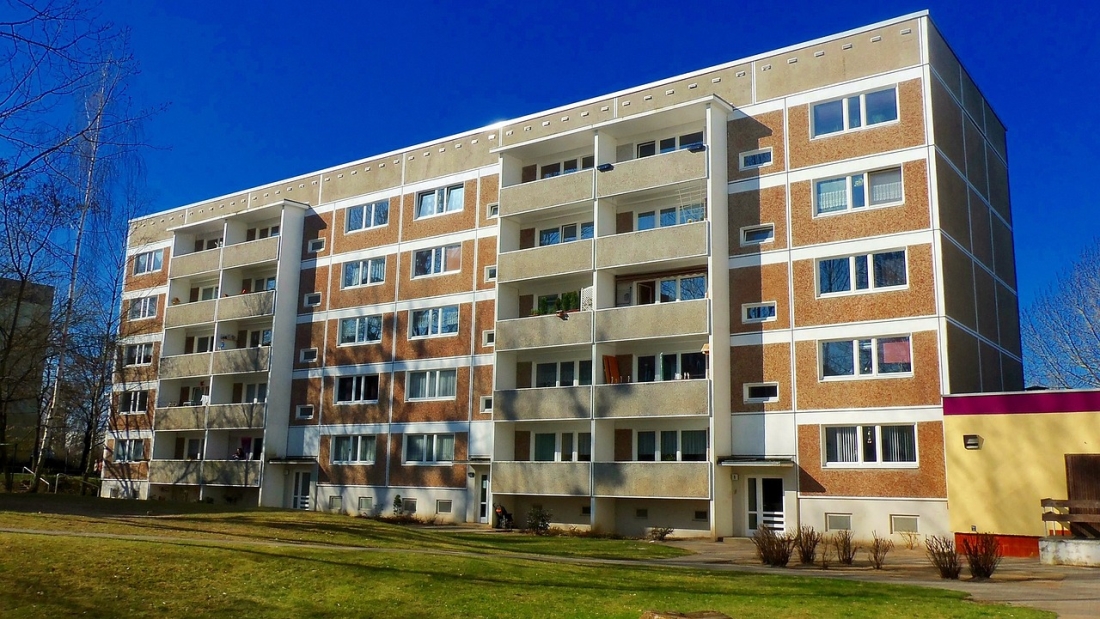Buying a home is an exciting and significant milestone, but it also comes with its share of challenges. To ensure a smooth and successful home buying experience in the Philippines, it’s crucial to avoid common mistakes.

In this comprehensive guide, we will navigate the legalities, paperwork, and nuances of buying a house in Philippines. Whether you’re a first-time buyer or an experienced investor, understanding the real estate landscape in the Philippines will help you make informed decisions and secure your dream home.
Failing to Establish a Budget
One of the most critical mistakes to avoid when buying a home is failing to establish a realistic budget. Without a clear understanding of your financial capabilities, you may find yourself in a precarious situation.
Here’s what you need to consider:
Assessing your financial capabilities: Before embarking on the home buying journey, take a close look at your finances. Determine how much you can comfortably afford as a down payment, as well as your monthly mortgage payment.
Consider your income, savings, and existing debts to establish a budget that aligns with your financial situation.
Understanding additional costs: Apart from the purchase price of the property, there are various additional costs associated with home buying. These may include taxes, closing costs, insurance, and ongoing maintenance expenses.
Failure to account for these expenses can strain your budget and lead to financial difficulties down the line. It’s essential to factor in these costs when establishing your budget.
Importance of pre-approval for a mortgage: Getting pre-approved for a mortgage is a crucial step in the home buying process. It provides you with a clear idea of the loan amount you qualify for, helping you set a more accurate budget.
Additionally, pre-approval strengthens your position as a buyer, demonstrating to sellers that you are a serious and financially capable candidate.
By establishing a well-defined budget, considering additional costs, and obtaining mortgage pre-approval, you can approach the home buying process with confidence and ensure that you make a financially sound decision.
Neglecting Proper Research

Neglecting proper research when buying a home in the Philippines can lead to costly mistakes and regrets. To make an informed decision, it’s crucial to invest time and effort into thorough research.
Consider the following aspects:
Identifying desired locations and neighborhoods: Start by determining your preferred locations and neighborhoods. Research the amenities, proximity to schools, hospitals, shopping centers, and transportation options.
Consider factors such as safety, convenience, and the overall livability of the area. This information will help you narrow down your options and focus on areas that align with your needs and preferences.
Researching property prices and market trends: Understanding the current property prices and market trends is essential for making a smart investment. Monitor the real estate market in the Philippines, including the average property prices in your desired locations.
Look for patterns and trends to identify the best time to buy. Keep in mind that prices may vary depending on factors such as demand, location, and property type.
Evaluating nearby amenities and facilities: Assess the availability and quality of nearby amenities and facilities. Look for essential services such as schools, hospitals, supermarkets, parks, and recreational facilities.
Having these amenities within close proximity can enhance your quality of life and increase the value of your investment. Consider the long-term implications of the surrounding infrastructure and development plans.
Overlooking Home Inspection
Overlooking the importance of a thorough home inspection is like setting sail without a compass, leaving you vulnerable to hidden dangers and unforeseen costs. Let’s delve into why a home inspection is an indispensable step in the home buying process:
Importance of professional home inspection: A professional home inspection is akin to a detective uncovering the secrets that lie beneath the surface of a property. Just as a skilled investigator reveals hidden clues, a qualified inspector evaluates the structural integrity, electrical systems, plumbing, HVAC systems, and overall condition of the home.
They act as your ally, identifying potential issues that may not be immediately visible to the untrained eye.
Identifying potential issues and hidden costs: A home inspection can uncover issues such as structural deficiencies, pest infestations, water damage, mold, faulty wiring, or plumbing leaks. These issues, if left unnoticed, can lead to significant expenses and headaches down the line.
By addressing these problems early on, you can negotiate repairs or factor in the costs in your budget, ensuring a smooth and stress-free homeownership experience.
Ensuring structural integrity and safety: A home is more than just walls and a roof; it is a sanctuary that should provide safety and security. A comprehensive inspection assesses the structural components of the property, ensuring that it meets safety standards.
From the foundation to the roof, an inspector can identify any weaknesses or potential hazards, allowing you to make an informed decision about the property’s suitability.
Just as a skilled surgeon saves lives with meticulous precision, a professional home inspector safeguards your investment by revealing the true condition of the property. Remember, overlooking a home inspection is like stepping into a labyrinth blindfolded, risking a maze of troubles and financial burdens.
Embrace the power of knowledge and enlist the expertise of a qualified inspector to guide you through the hidden landscape of your prospective home.
Not Considering Future Needs

Failing to consider your future needs when buying a home is like purchasing a pair of shoes that are too tight, leaving you uncomfortable and constrained. Let’s explore why it’s essential to look beyond the present and consider your long-term requirements:
Assessing long-term plans and lifestyle changes: Buying a home is a significant investment, and it’s vital to envision your future plans and lifestyle. Consider factors such as family expansion, potential career changes, or lifestyle adjustments.
Just as a chameleon adapts to its environment, your home should accommodate your evolving needs and provide the necessary space and functionality.
Considering family expansion and space requirements: If you have or plan to have a growing family, it’s crucial to assess the home’s capacity to accommodate your needs. Will there be enough bedrooms, bathrooms, and common areas?
Can the property be easily modified or expanded if necessary? Just as a seedling grows into a mighty tree, your home should have the potential to evolve and adapt to your family’s needs.
Evaluating the resale potential of the property: While purchasing a home is a personal decision, it’s prudent to consider its potential resale value. Trends and market dynamics change over time, and you want to ensure that your investment retains its value and appeal.
Consider factors such as location, amenities, and the overall demand for properties in the area. Just as a rare gemstone retains its value and allure, a well-chosen home can provide long-term financial security.
By considering your future needs, you can avoid outgrowing your home too quickly or facing the need to relocate sooner than anticipated. Remember, a home should be a sanctuary that nurtures your dreams and accommodates your aspirations.
Look beyond the present and envision how your home will grow and adapt with you, just as a canvas becomes a masterpiece with each brushstroke.
Ignoring Legal and Documentation Requirements
Ignoring the legal and documentation requirements when buying a home is like embarking on a journey without a map or compass, leaving you vulnerable to unforeseen obstacles and legal complications. Let’s explore why understanding and adhering to these requirements is crucial:
Understanding legal processes and regulations: Buying a home involves navigating a complex web of legal processes and regulations. Just as a seasoned captain steers a ship through treacherous waters, understanding the legal framework ensures a smooth and secure transaction.
Familiarize yourself with property laws, ownership regulations, and any specific requirements that apply to your location in the Philippines.
Verifying property ownership and titles: Ensuring that the property you intend to purchase has clear and valid ownership is paramount. Just as an archaeologist verifies the authenticity of ancient artifacts, verify the property’s title and ownership through official channels.
Conduct a title search, review land records, and consult with legal professionals to confirm the property’s legitimacy and protect yourself from potential disputes or fraudulent transactions.
Reviewing contracts and agreements: Contracts and agreements are the foundation of any real estate transaction. Just as a skilled architect meticulously designs a blueprint, carefully review all contracts and agreements related to the purchase.
Pay close attention to terms, conditions, warranties, and any potential contingencies. Seek legal counsel if needed to ensure that your rights and interests are protected.
By paying attention to the legal and documentation requirements, you can navigate the real estate landscape in the Philippines with confidence and peace of mind. Ignoring these requirements is like wandering through a dense forest without a guide, exposing yourself to legal risks and potential financial losses.
Embrace the power of knowledge and adhere to the legal framework to secure your investment and build a solid foundation for your homeownership journey.
Relying Solely on Online Listings

Relying solely on online listings when buying a home is like judging a book solely by its cover, potentially leading to misleading information and disappointment. To ensure a well-informed decision, it’s crucial to go beyond the virtual realm.
Here’s why:
Importance of visiting properties in person
While online listings provide a convenient starting point, visiting properties in person is essential. Just as an art connoisseur appreciates the intricacies of a painting up close, walking through a property allows you to experience its true essence.
You can assess its condition, layout, and overall ambiance, ensuring it aligns with your expectations.
Identifying misleading information and deceptive photos
Online listings may not always provide an accurate representation of a property. Photographs can be edited, angles can be deceiving, and crucial details may be omitted.
Just as a skilled illusionist captivates an audience with sleight of hand, online listings can create illusions that may not reflect the reality of a property. By visiting in person, you can see beyond the facade and make informed judgments.
Seeking assistance from reputable real estate agents
While online resources are valuable, partnering with a reputable real estate agent can provide additional expertise and insights. Agents act as trusted guides, helping you navigate the market, identifying suitable properties, and negotiating on your behalf.
Just as a seasoned navigator leads a ship through uncharted waters, an experienced agent can help you find the hidden gems and avoid potential pitfalls.
By going beyond online listings and engaging in personal visits and assistance from real estate agents, you can uncover the true nature of properties and make well-informed decisions. Remember, a home is not merely a collection of pixels on a screen but a tangible space that should resonate with your dreams and aspirations.
Step away from the virtual realm and immerse yourself in the physical reality to discover the perfect home for you.
Disregarding the Importance of a Home Inspection
Disregarding the importance of a comprehensive home inspection is like crossing a tightrope without a safety net, leaving you vulnerable to unforeseen hazards and costly repairs. Let’s delve into why a home inspection should never be overlooked:
Identifying potential issues and hidden costs
A home inspection serves as a detective, uncovering hidden secrets and potential pitfalls. Just as an investigator unravels a mystery, an inspector meticulously examines the property, identifying issues that may not be immediately visible.
These can include structural deficiencies, electrical or plumbing problems, roofing issues, or hidden damages. By uncovering these issues early on, you can make informed decisions and budget for any necessary repairs.
Ensuring structural integrity and safety
A home is more than just walls and floors; it should provide safety and security. A thorough inspection evaluates the structural integrity of the property.
It checks for signs of foundation problems, structural weaknesses, or safety hazards. Just as a guardian angel protects and watches over, a home inspector ensures that the property meets safety standards and provides a secure living environment.
Evaluating the condition of plumbing, electrical, and HVAC systems
Plumbing, electrical, and HVAC systems are the lifelines of a home. A home inspection assesses the functionality and condition of these critical components.
It identifies potential issues such as leaky pipes, outdated electrical wiring, or malfunctioning HVAC units. Just as a skilled physician diagnoses and treats ailments, a home inspector diagnoses potential system failures, allowing you to address them before they become major headaches.
By prioritizing a comprehensive home inspection, you can gain peace of mind and avoid costly surprises. Disregarding this crucial step is like walking through a minefield blindfolded, exposing yourself to potential dangers and financial burdens.
Embrace the power of knowledge and enlist the expertise of a qualified home inspector to ensure that your dream home is a solid and secure investment.
Skipping a Thorough Neighborhood Analysis

Skipping a thorough neighborhood analysis when buying a home is like embarking on a journey without a map, leaving you unaware of the surroundings and potential drawbacks. To make an informed decision, it’s crucial to dive deep into the neighborhood.
Here’s why:
Evaluating Safety, Crime Rates, and Proximity to Essential Services
The safety and security of a neighborhood are paramount. Just as a fortress protects its inhabitants, a safe neighborhood provides peace of mind.
Research crime rates, speak with local authorities, and gather information about the safety measures in place. Additionally, assess the proximity to essential services such as schools, hospitals, supermarkets, and public transportation.
A convenient and well-connected neighborhood enhances your quality of life and adds value to your investment.
Researching Nearby Schools, Hospitals, and Public Transportation
If you have children or plan to start a family, the availability of quality education is crucial. Research nearby schools, their reputation, and educational programs.
Consider the accessibility and quality of healthcare facilities in the vicinity, as proximity to reliable healthcare services is essential. Moreover, evaluate the availability and efficiency of public transportation options, which can significantly impact daily commutes and convenience.
Assessing the Potential for Future Property Value Appreciation
A neighborhood’s growth potential can greatly impact the value of your investment. Just as fertile soil nurtures the growth of a plant, an up-and-coming neighborhood can lead to property value appreciation.
Look for signs of development, infrastructure improvements, or planned projects that can positively impact property values. Additionally, consider the desirability of the neighborhood and its appeal to potential buyers in the future.
By conducting a thorough neighborhood analysis, you gain insights into the safety, convenience, and growth potential of the area. Skipping this step is like closing your eyes to the surroundings, potentially missing out on crucial factors that can affect your long-term satisfaction and investment value.
Embrace the role of a detective, gathering information, visiting the neighborhood, and envisioning your future in the community.
Making Emotional Decisions
Making decisions based solely on emotions when buying a home is like navigating a turbulent sea without a compass, risking regrets and financial turbulence. Let’s explore why it’s essential to approach the home buying process with a clear and rational mindset:
Avoiding Impulse Purchases and Bidding Wars
Emotions can cloud judgment, leading to impulsive decisions or getting caught up in bidding wars. Just as a siren’s song can lure sailors to their demise, the allure of a property may tempt you to overlook potential issues or exceed your budget.
By maintaining a rational approach, you can carefully evaluate the pros and cons, consider your budget, and resist the urge to succumb to impulsive desires.
Seeking Advice From Experienced Professionals
When emotions run high, seeking advice from experienced professionals can provide valuable guidance. Just as a wise sage offers counsel in times of uncertainty, a real estate agent or a financial advisor can provide objective insights and help you make informed decisions.
Their expertise can help you navigate complexities, negotiate offers, and ensure that your decisions align with your long-term goals.
Considering Practicality and Long-Term Suitability
While emotions can drive us, it’s important to balance them with practicality. Just as a sturdy bridge ensures a safe passage, a home should meet your practical needs and align with your long-term plans.
Consider factors such as location, size, layout, and functionality. Assess how well the property can accommodate your lifestyle, potential future changes, and the resale potential.
By approaching the home buying process with a rational mindset, you can avoid being swayed solely by emotions. Making well-informed decisions ensures that your investment aligns with your goals and financial capabilities.
Remember, a home is more than just an emotional attachment; it should be a practical and strategic choice that supports your aspirations and enhances your quality of life.
Quick Notes
In the journey of buying a home, avoiding common mistakes is crucial for a successful and satisfying experience. By being mindful of the pitfalls and taking proactive steps, you can make informed decisions and secure your dream home in the Philippines.
From establishing a realistic budget to conducting thorough research, each step plays a vital role in the process. Remember to prioritize a comprehensive home inspection, ensuring that the property is structurally sound and free from hidden issues.
Don’t disregard the legal and documentation requirements, as they safeguard your investment and protect your rights.
Additionally, don’t overlook the importance of considering your future needs. A home should accommodate your evolving lifestyle and provide long-term suitability.
By evaluating the neighborhood, you can ensure safety, convenience, and potential property value appreciation.
Lastly, avoid making decisions solely based on emotions. Stay rational, seek advice from professionals, and consider practicality alongside your desires.
By maintaining a balanced perspective, you can make choices that align with your goals and secure a home that brings joy and fulfillment.
As you embark on your home buying journey in the Philippines, remember that knowledge is your ally. Educate yourself, seek guidance, and make decisions with confidence.
The path to finding your ideal home may have challenges, but by avoiding common mistakes, you can pave the way for a smooth and rewarding homeownership experience.
Congratulations on taking this exciting step, and may your new home be a sanctuary where dreams flourish and memories thrive.






